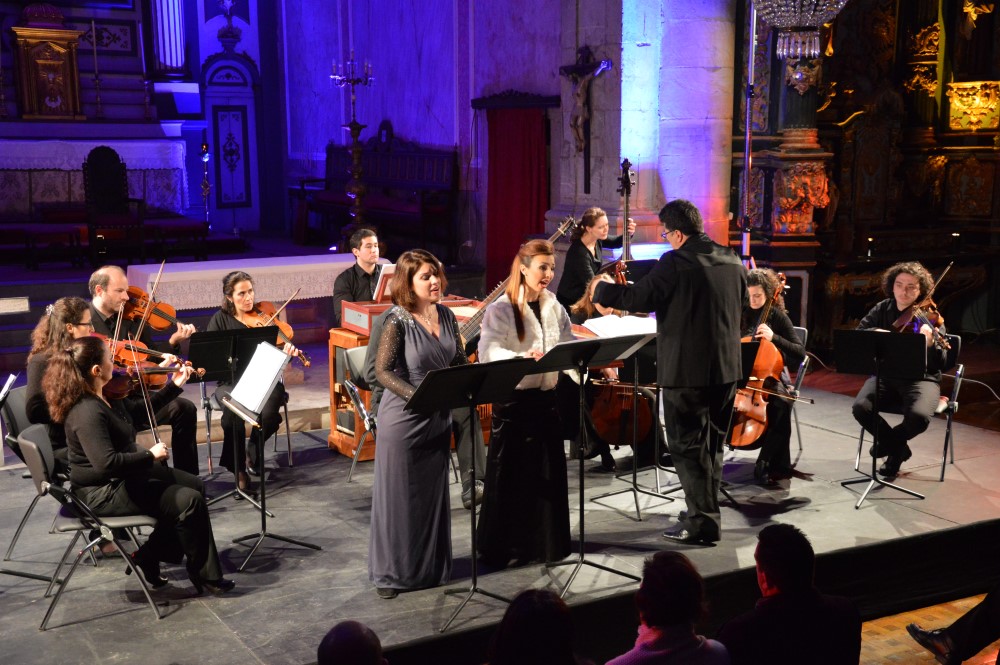 When the young soprano Bárbara Barradas finished singing the last notes of «Siete Palabras de Cristo en la Cruz», an enormous silence engulfed the Church of Santo Ildefonso, not because the 600+ people who attended the concert didn't like it, but because the moment was so beautiful that everyone was in abeyance. Seconds later, clapping and shouts of "brava!" and everyone rose to applaud.
When the young soprano Bárbara Barradas finished singing the last notes of «Siete Palabras de Cristo en la Cruz», an enormous silence engulfed the Church of Santo Ildefonso, not because the 600+ people who attended the concert didn't like it, but because the moment was so beautiful that everyone was in abeyance. Seconds later, clapping and shouts of "brava!" and everyone rose to applaud.
This was the final moment of the inaugural concert of the 12th Festival Terras sem Sombra, on the 27th of February, in the beautiful Igreja de Santo Ildefonso, in Almodôvar, Baixo Alentejo.
The motto is thus set for another edition of the only festival that, in Portugal, unites classical music (mostly sacred), built religious heritage and natural heritage.
This is also the only festival that spans two days, the first dedicated to music itself, with the concert on Saturday night, and the second dedicated to the preservation of biodiversity, the following Sunday morning, with the presence of musicians, organizers and the general public.
In between, there is still time to celebrate another heritage of this deep Alentejo, the gastronomic one, with the supper that follows the concert, shared by all, and which in Almodôvar was dedicated to a cod dish.
José António Falcão, director of the Department of Historical and Artistic Heritage of the Diocese of Beja and director-general of the Festival, has no doubts that this is a «unique experience». And he stresses that "this was recognized last year, when Terras sem Sombra was considered the 5th best festival in the world in its specialty, which is sacred music."
The opening concert in Almodôvar, entitled «Like Trees in Spring: Noticen, Avondano, García Fajer», brought together the baroque orchestra Divino Sospiro, under the baton of Massimo Mazzeo, and two Portuguese sopranos who have triumphed on international stages, Bárbara Barradas and Joana Seara, who showed the scope that the belcanto knows among us, thanks to the efforts of new generations of lyrical artists who combine talent with enviable technical preparation.
The most curious thing is that this is a festival that, over its dozen editions, has garnered a chorus of faithful admirers. In 2015, approximately 5000 people attended the eight concerts of Terras sem Sombra. “Churches are always breaking down. Even the big Churches, like the one in Almodôvar, are already small” to welcome everyone who wants to attend. And there is also the indirect public, who hear the concerts broadcast on radio, television, and on the internet.
José António Falcão reveals, in an interview with Sul Informação, at the end of Almodôvar's concert, that there are «spectators who come from Brazil, France, Germany, on purpose to attend various concerts. It's that, in fact, some of these occasions are unique, the Portuguese repertoires and not only, as is the case of this year in Brazil, are interpreted for the first time here at the Festival, and some of them haven't been heard since the time they were composed. ».
And how is it that a provincial festival, which takes place above all in the churches of a still very unknown Alentejo, asserts itself as such?
"Today, in the field of classical music, as in music in general, those traditional borders that were previously pointed out, perhaps a little prejudiced, between the big cities and the peripheries have been diluted", the director replies without hesitation. -general of the Festival.
«Today, in our country, but also in Spain, Italy, France and the rest of Europe, there are festivals held in territories with strong identities, such as Alentejo, those that are offering more interesting experiences».
Why? Because “the public may live these events more directly, more intensely,” he adds.
On the other hand, «the possibility of using spaces that are of great beauty, but also that have extraordinary conditions from an acoustic point of view, adds to the interest». And then «people, the general public and music lovers, here find the possibility of visiting a country that, although less known, is surprising».
«In Almodôvar, we feel this: there is an identification between the public and the artists. And the artists, somehow, surpass themselves, and then surprising things are born out of this, which makes this festival something different», guarantees José António Falcão.
In recent years, Terras sem Sombra has chosen Almodôvar and its beautiful matrix dedicated to Santo Ildefonso, a hall church where Baroque refinements are clearly visible.
And why this choice of Almodovar? The Festival's general director explains that «Almodôvar is part of a very interesting cultural and tourist route. It is a land that, due to its cultural heritage, but also because of its biodiversity and even regional products, lends itself very much to our valuing this type of initiative».
«We want to give a sign of appreciation for the most unknown and deepest Alentejo», he stresses, admitting that «it would be easier to start this Festival in other places, but we always wanted to come here, to the heart of Campo Branco, and the public has rewarded us».
António Bota, mayor of Almodôvar, thanks the Festival for this interest, saying that “it is an honor for us that it starts” in that town.
"This is of enormous importance because, in addition to the brilliance it brings us in cultural terms, it also has a national and international projection that takes Almodôvar across borders and gives prestige to the name of our municipality."
The mayor also recognizes the movement that the festival weekend brings to his county, with the only hotel and rural tourism accommodation full, the restaurants crammed with people and the market and small shops, especially those selling traditional products, to earn more.
«Everything that is a reason to bring tourists to Almodôvar is an asset», assumes António Bota, adding that it is necessary to use «the Festival Terras sem Sombra or the events that the Chamber promotes as strong arguments to bring more tourists to our municipality» .
Francisco Almeida Garret, Grand Master of the Confraria do Sobreiro e da Cortiça, one of the guests at the initiative, would point out that “there are people who come to the festival year after year and many of them wouldn't come if it weren't for this reason. During the festival weekend, there are people who stay here and contribute to the local economy. Many of them return later. All of this is extremely important for these most forgotten territories, especially here in Alentejo».
In its 2016 edition, which continues next weekend, March 12th and 13th, with a concert at the Centro das Artes in Sines, Terras sem Sombra is dedicated to Brazil, as a guest country. After Almodôvar, there will also be concerts in Sines, Santiago do Cacém, Ferreira do Alentejo, Odemira, Serpa, Castro Verde and Beja, always under the title Torna-Viagem: Brazil, Africa and Europe (From the Middle Ages to the XNUMXth century).
And why this choice of Brazil? It is again José António Falcão who answers: «Festival Terras sem Sombra seeks to have a coherent programme. It's not just a beautiful cycle of concerts, which would be no small thing, but we try to have a thread, to have a great coherence in all of this. But above all there is a very important aspect which is: to make known to the public in the region and to all those who want to join us a little history of music, told edition after edition».
To "give body" to this purpose, from this year onwards there is a guest country, starting with Brazil, which "has a lot to do with Portugal from a musical point of view", while "the Alentejo has very deep historical ties with that country ».
The Festival's general director explains that «Brazil shares with us the same musical evolution. Until its independence, it was part of the same musical tradition, there was no distinction between Portugal and Brazil, but even after independence, this matrix was maintained. But we can say that Brazil is a great unknown among us, especially with regard to [erudite] music from the XNUMXth and XNUMXth centuries and now, now, in the XNUMXst century».
Therefore, he stresses, “we felt that there was a kind of duty here. This year we are going to have premieres, for the first time in Europe, of some Brazilian plays and even the presentation of an opera. As a novelty for this year's festival, we have the presentation of two operas and one of them is Brazilian», he revealed.
The generic theme of the «Torna-Viagem» Festival is due, according to José António Falcão, to the fact that Brazil has inherited «our music, but later transformed it and gave it back to us, enriched with its own legacy, with a great influence of indigenous cultures and particularly of African culture». On April 16, in Ferreira do Alentejo, the first chapter of this Brazil/Portugal musical connection will begin to be unraveled, with the concert «Esse Mar, esse Sertão: the Music of Brazil in the Time of the Kingdom and the Empire».
But the Festival Terras sem Sombra, in addition to music, is also nature. This was highlighted by the mayor António Bota, in statements to the Sul Informação: «this is also a festival that mixes cultural heritage with biodiversity and that is something that worries us».
The next day, in the field, in the activity On the Razor's Edge: Reconciling the Montado with Agriculture and Pastoral Care, which intended to contribute to the enhancement of the Portuguese cork oak forest, councilor Ricardo Colaço would emphasize the importance that the municipality attaches to its natural heritage, in particular the cork oak. «Cork is our gold. For hundreds of years Almodôvar has lived off the cork oak», the councilor would say.
In a festival based on the Heritage-Music-Nature trilogy, a cold Sunday morning was dedicated to discovering the threatened richness of the cork oak forest. Musicians, conductor Massimo Mazzeo, sopranos Bárbara Barradas and Joana Seara, mayors, technicians, forest sappers, the general public, people interested in the themes of biodiversity and nature conservation, all set to work pruning a young population of cork oaks and holm oaks, on a farm near the village of Almodôvar.
Guilherme Santos, from the Institute for the Conservation of Nature and Forests, explains that this was “an example project of the many that have been carried out in the municipality”. In recent years alone, he reveals, 7,5 million euros were invested and 6800 hectares were planted with quercinea (cork oaks and holm oaks).
Eugénio Sequeira, university professor and retired researcher, member of the League for the Protection of Nature (LPN), and one of the greatest national authorities on desertification problems, stresses: “this tree is what defends us from the desert”. But he highlighted the threats that overshadow the future of cork oak forests, especially those caused by climate change, which has altered the rainfall regime. «The rains are now more and more intense. Here there are occasional rains of 200 mm/hour, when this land only has the capacity to absorb 15 mm/hour. For this reason, the water flows out, it does not infiltrate the soil, and the trees are left without water».
Eugénio Sequeira defends the need to “quickly improve the technology to retain water in the soil” and even presented some solutions, which have already been successfully tested on LPN's farms in the Castro Verde area.
«The wealth of the cork oak forest is not the money it generates. It is the fact that it is the best defense against the degradation of this ecosystem, it is the fact that it defends us, in vast areas of southern Portugal, from the advance of the desert», he adds.
Francisco Almeida Garret, grand master of the Confraria do Sobreiro e da Cortiça, himself a farmer and active defender of nature in his lands in Avis, stresses that «the cork oak forest is one of the 34 hotspots of biodiversity, is the 2nd after the Amazon».
But he emphasizes that the cork oak forest is a landscape and an ecosystem created and treated by man, and that is what makes it unique. «Having a well-treated cork oak forest is not having everything very clean. This is killing the forest," he stressed, warning of wrong practices, which have contributed to the decline. «I haven't mobilized the land for 30 years and the results are in sight».
Recalling that the Festival Terras sem Sombra is an initiative of the Diocese of Beja, Eugénio Sequeira quotes Pope Francis' last encyclical and guarantees: "if we don't take care of God's work, Nature will plot us!"
Ana Seixas Palma, one of the people who joined the group, on a windy Sunday morning, to help take care of the small cork oaks, pruning scissors in hand, argues that «the importance of these actions is enormous, because we are joining the local population, with people who come from urban areas, with these musicians who are unaware of the importance of these species and these habitats. It is important to mobilize different audiences, to contribute to the improvement of our environment».
Following all the explanations carefully, maestro Massimo Mazzeo was one of the first to get down to work, in accordance with the instructions of Guilherme Santos. "How exciting!" he exclaims after, with an effort, he has cut an extra leg in a cork oak.
At the end of a weekend dedicated to celebrating heritage in its various facets, the two sopranos Bárbara Barradas and Joana Seara sang their song next to one of the young trees that insist on rescuing that increasingly shadowless land from the desert. .
photos: Elisabete Rodrigues|Sul Informação
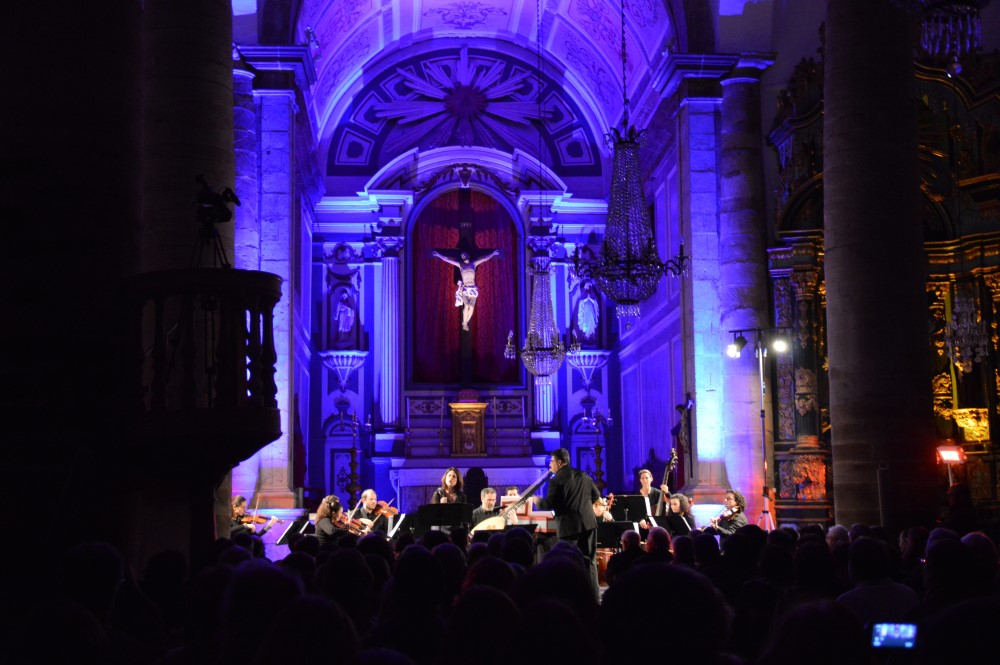
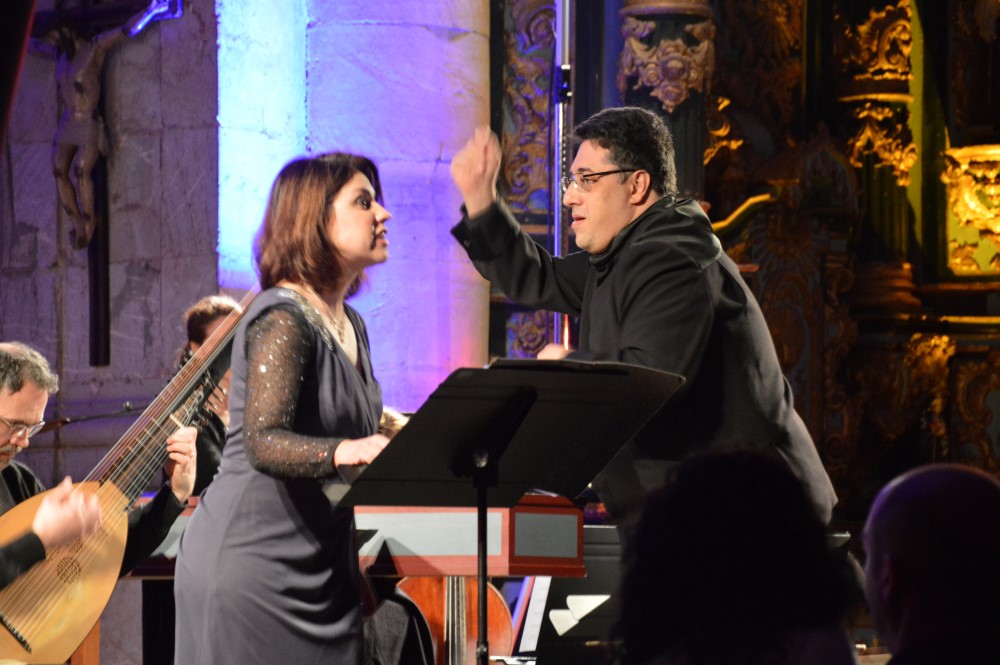
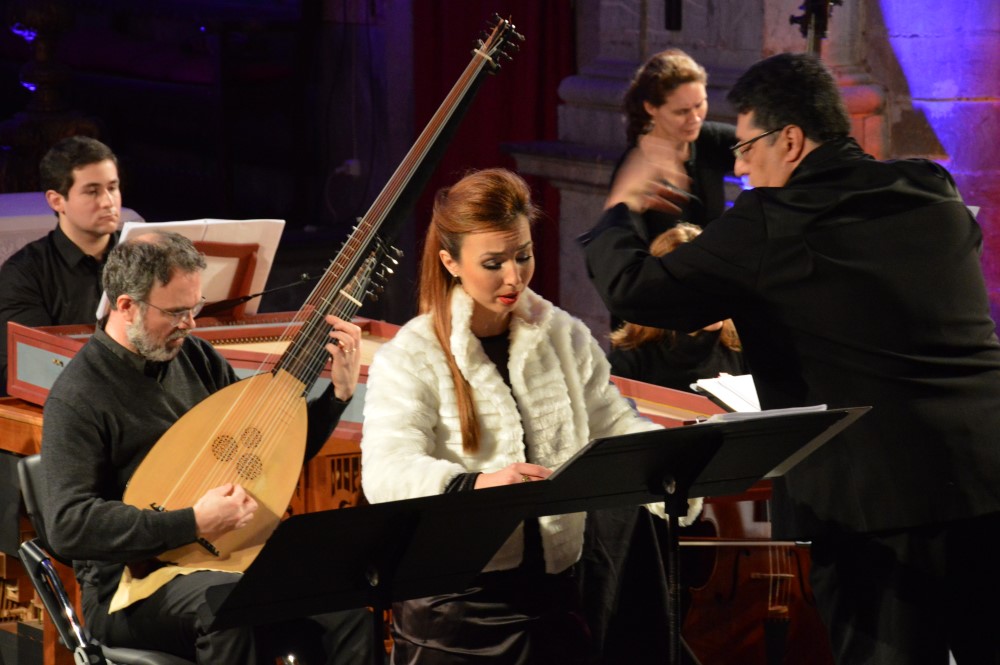
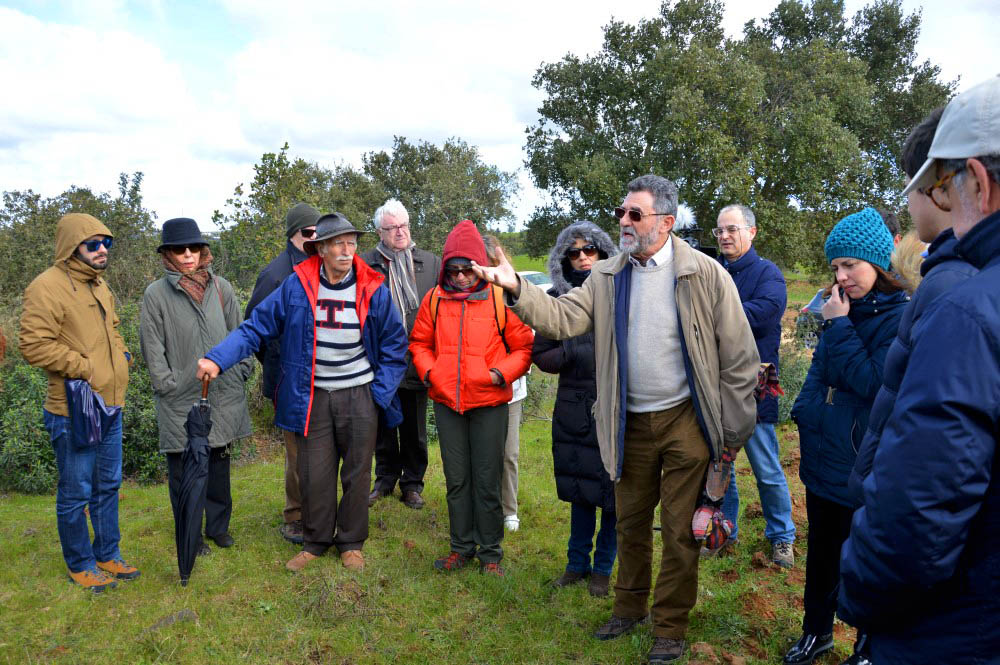
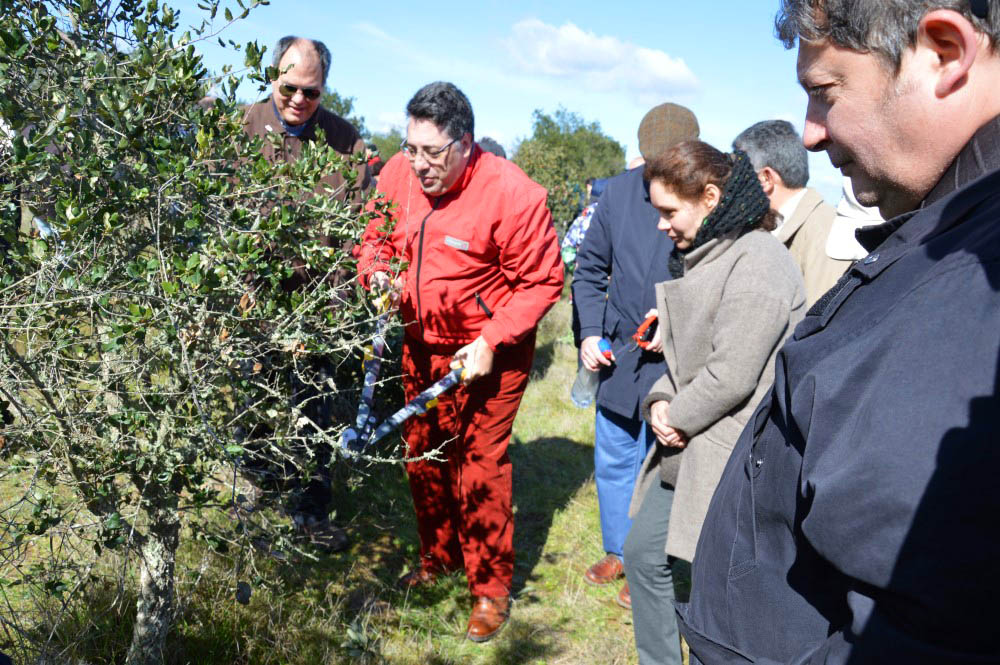
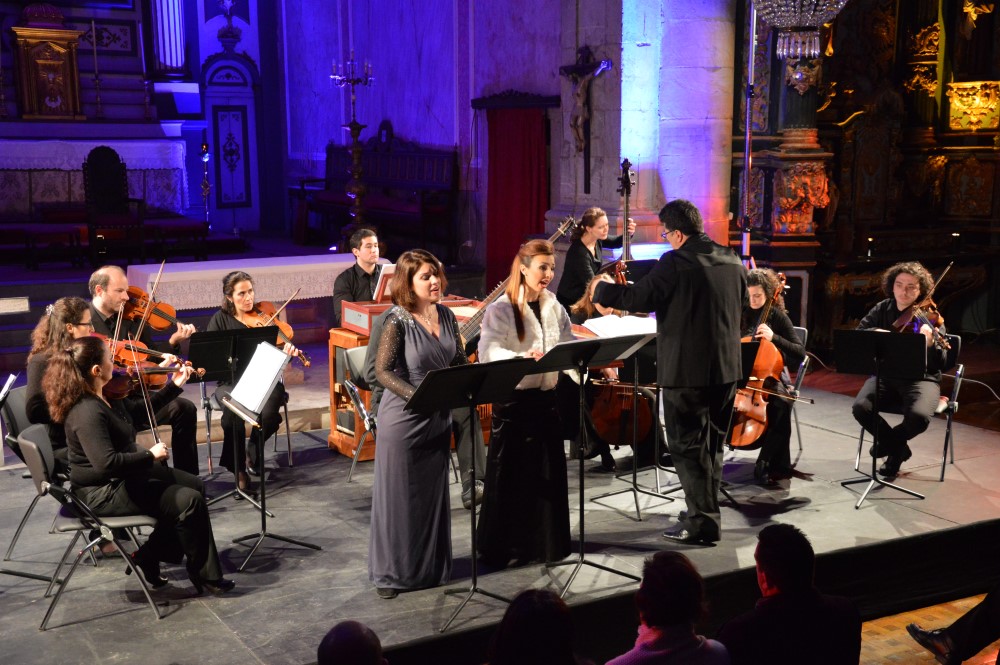
















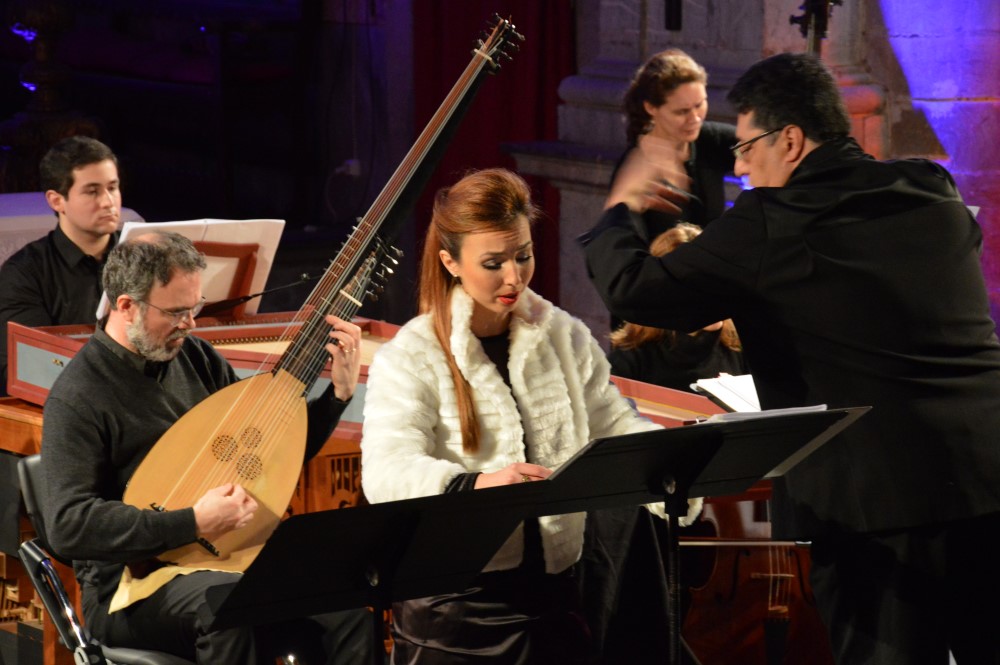











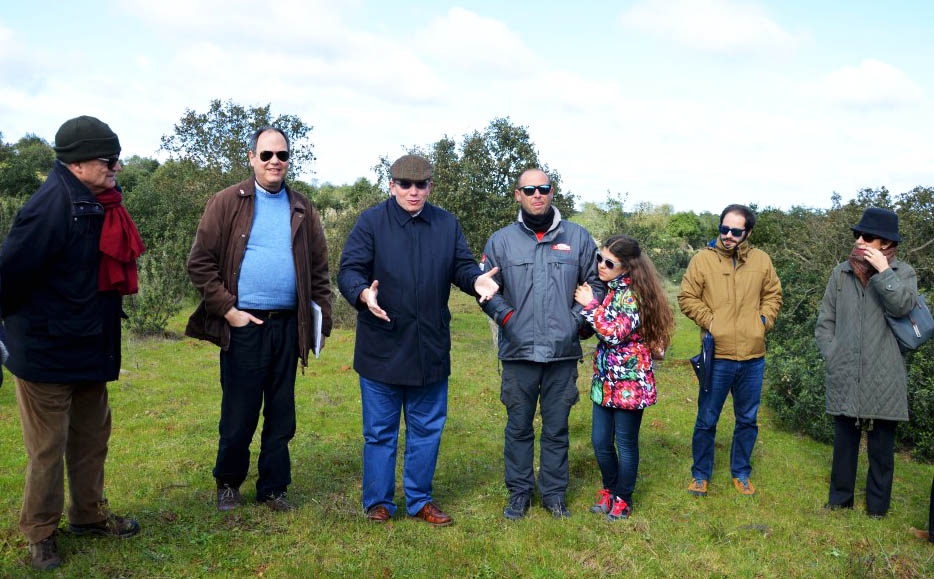
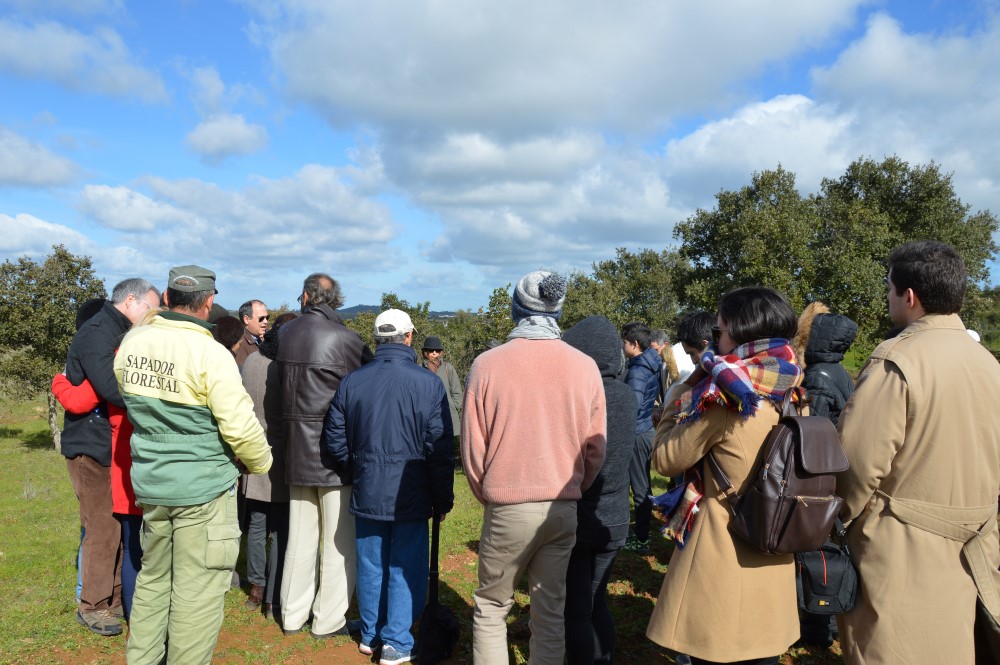
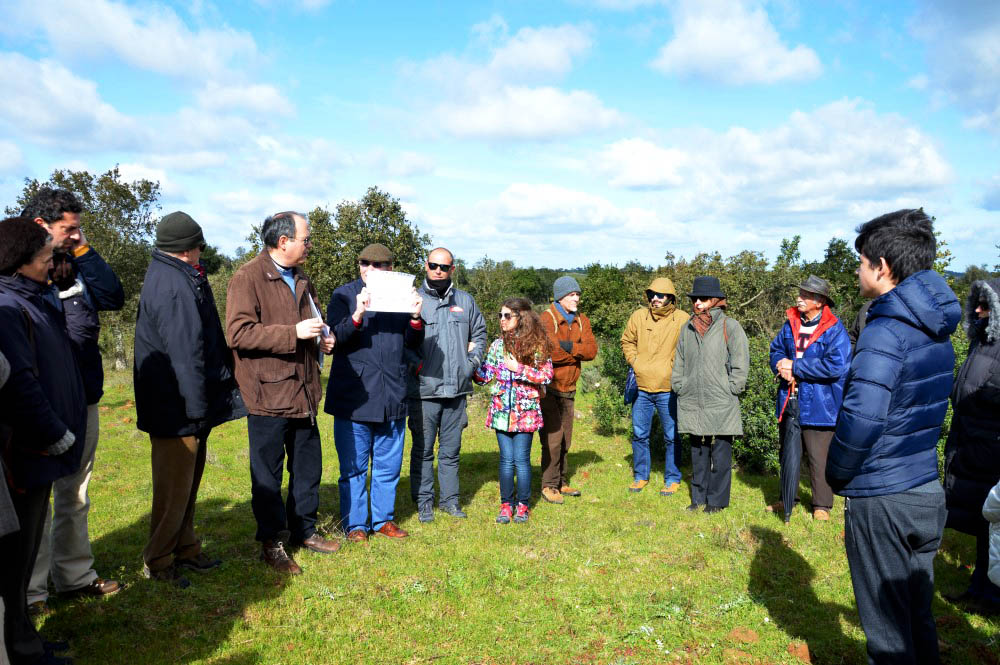
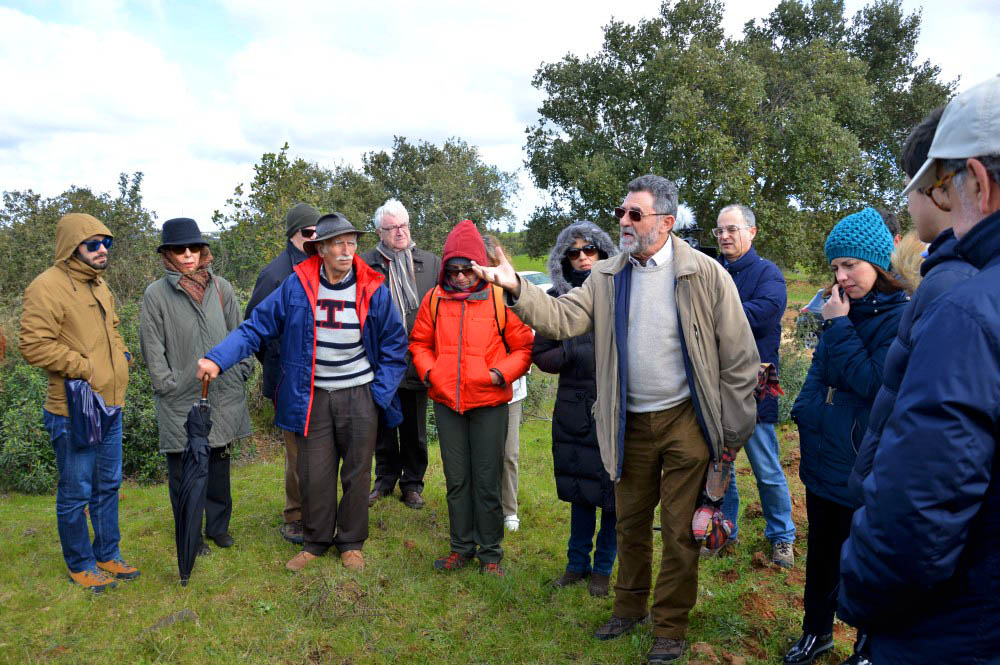
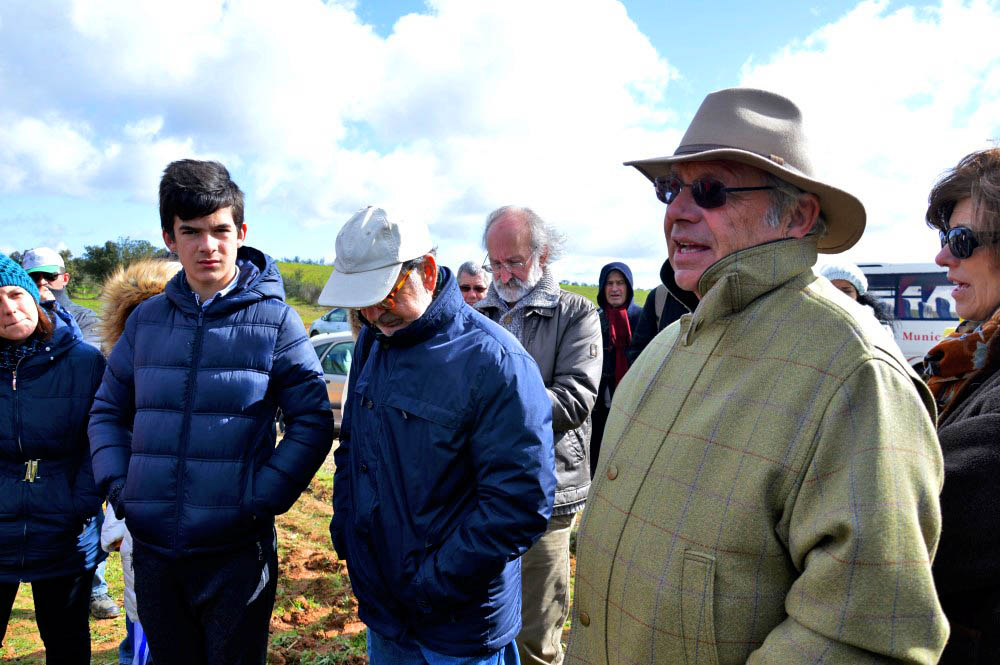
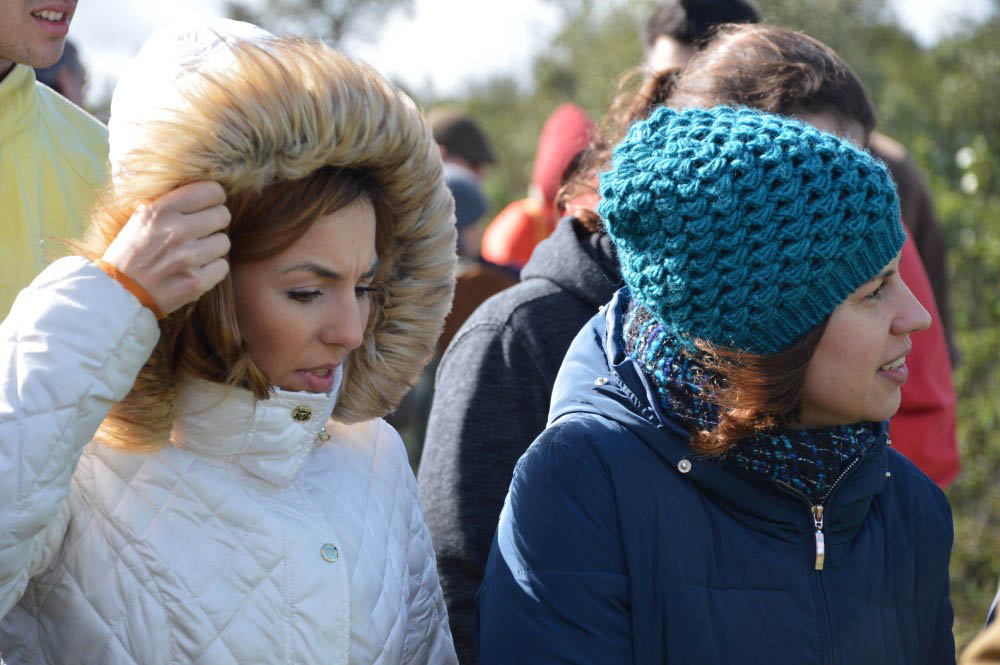
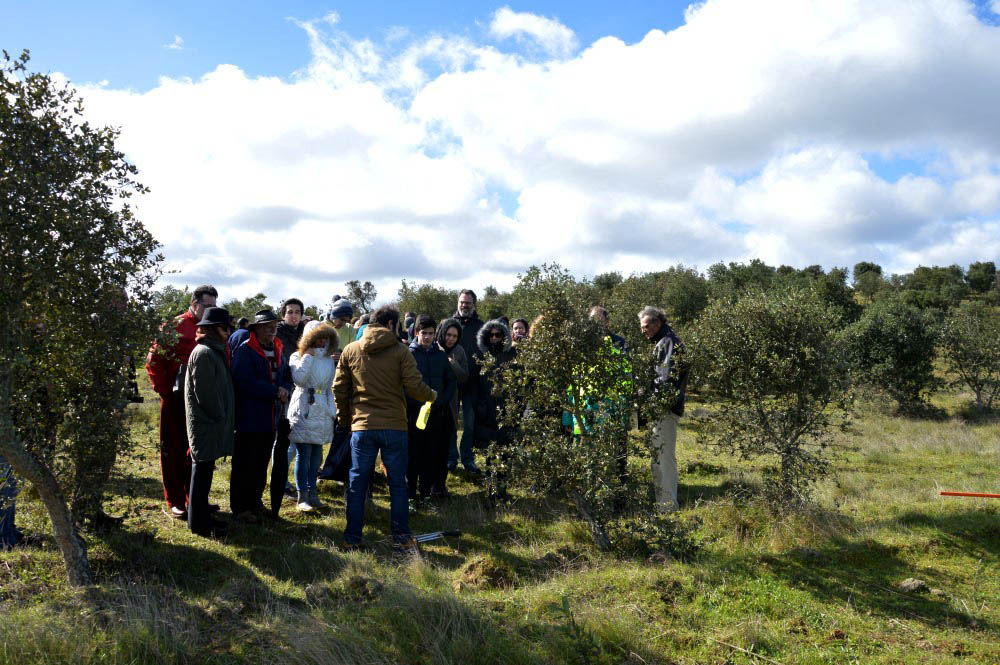
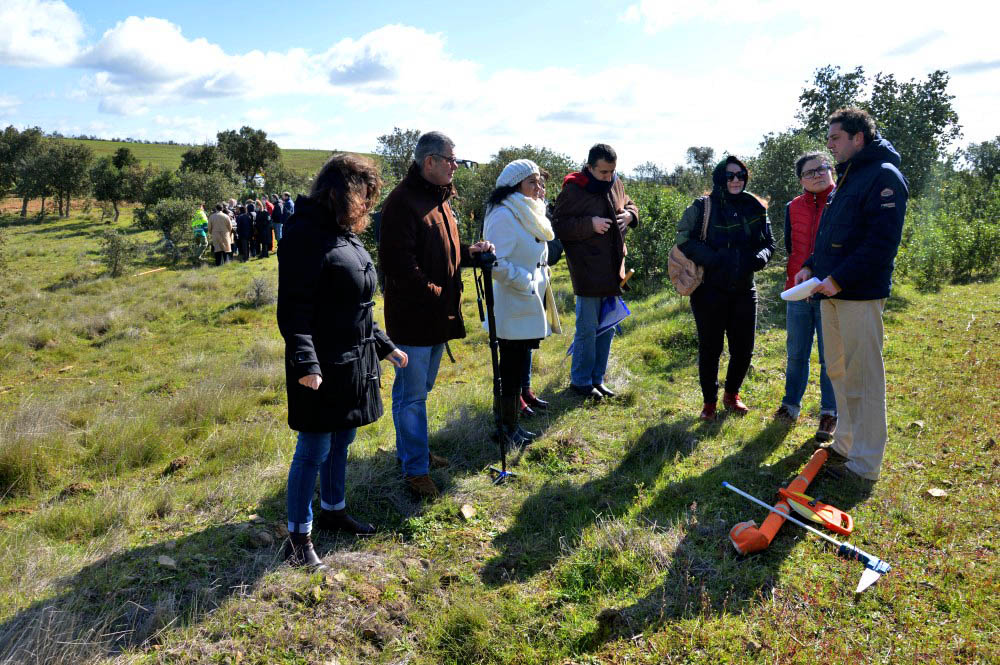
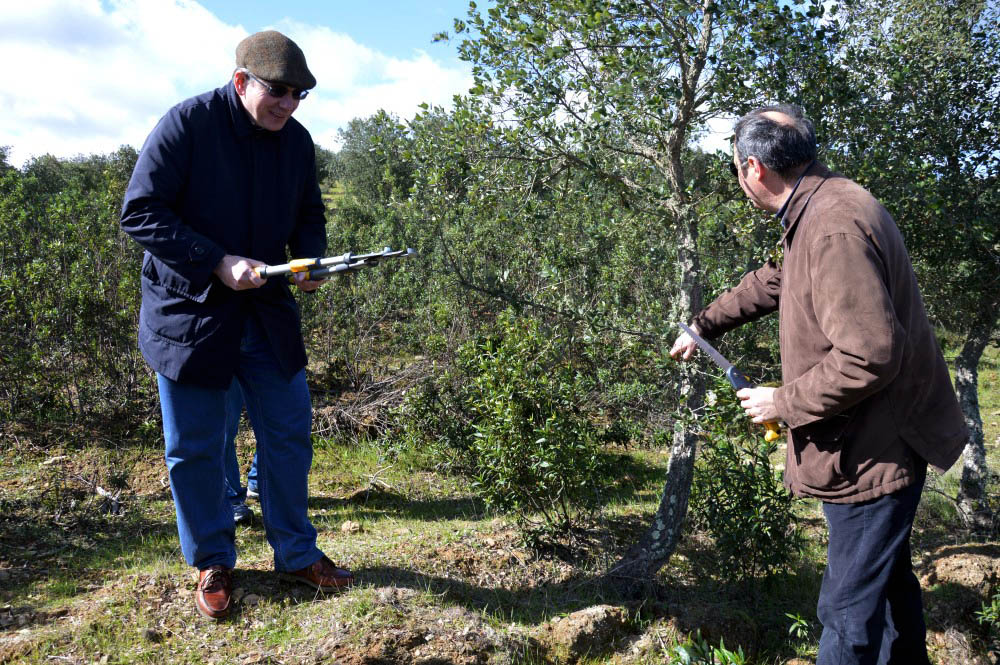
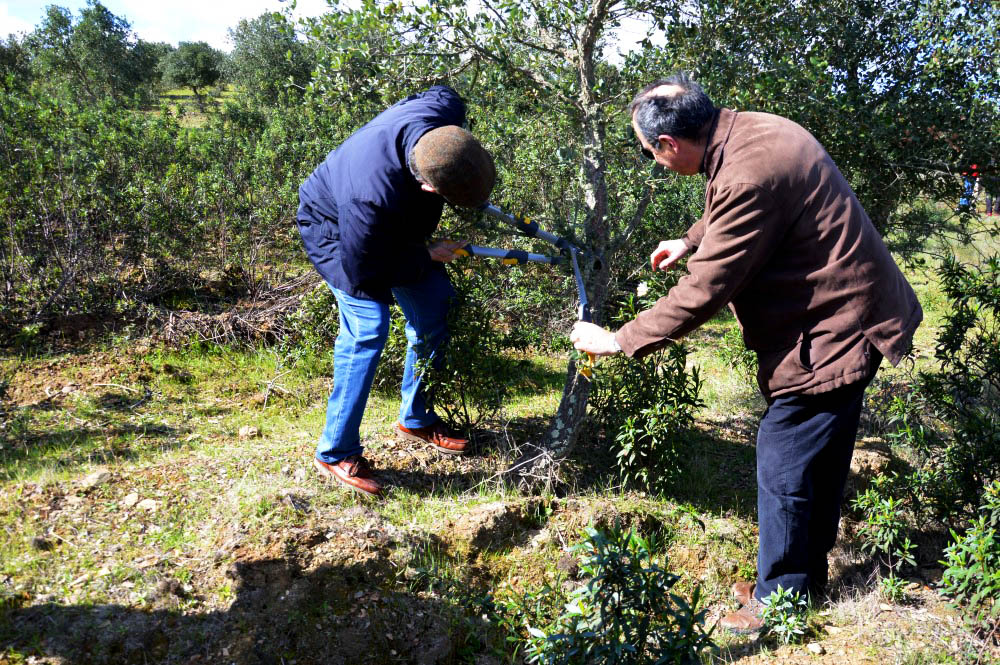
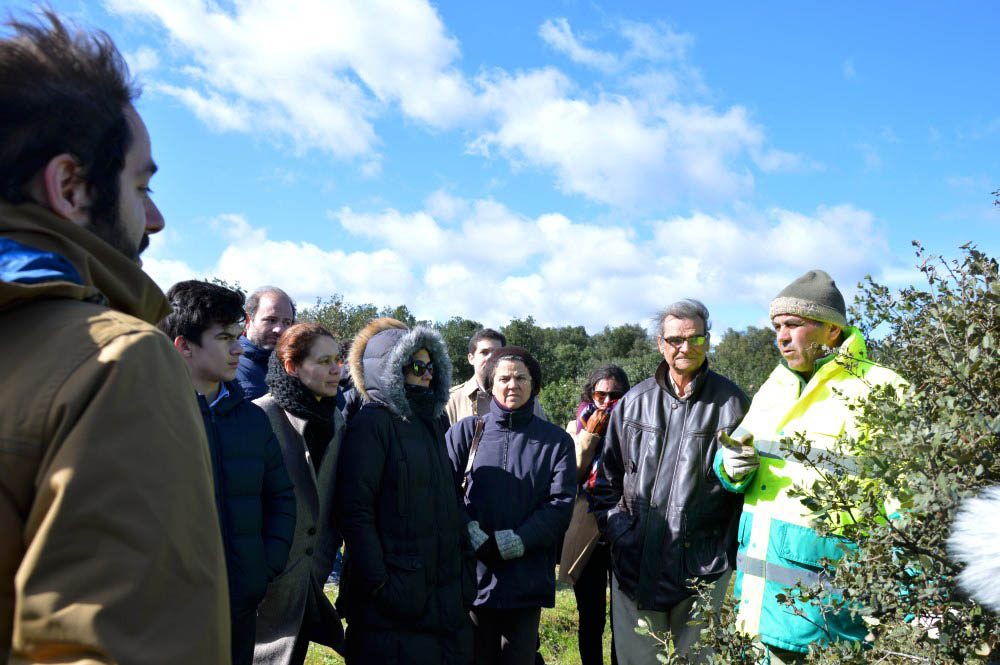
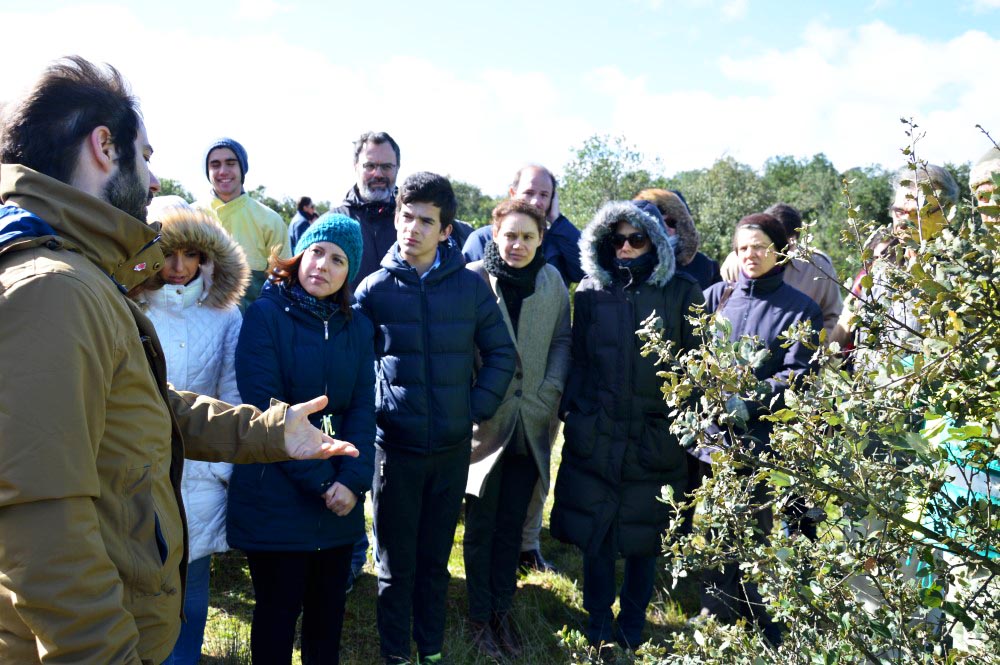
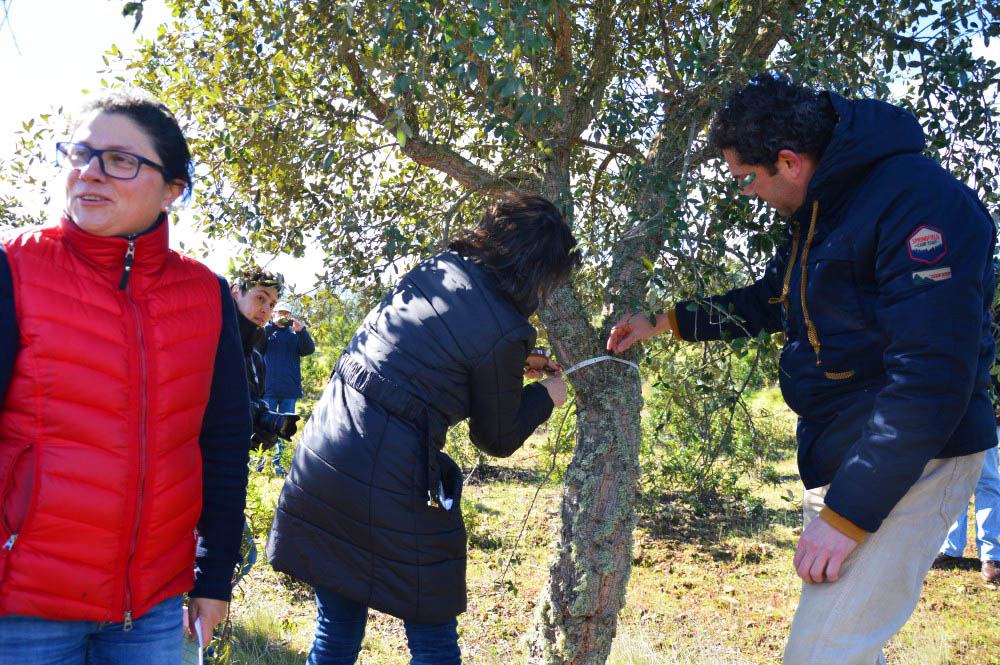
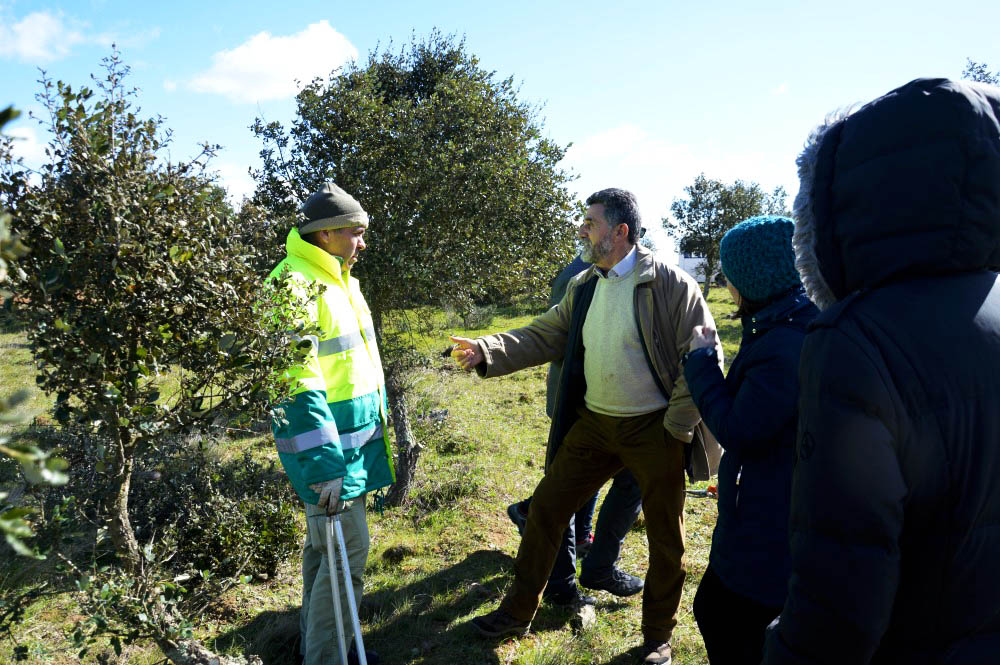
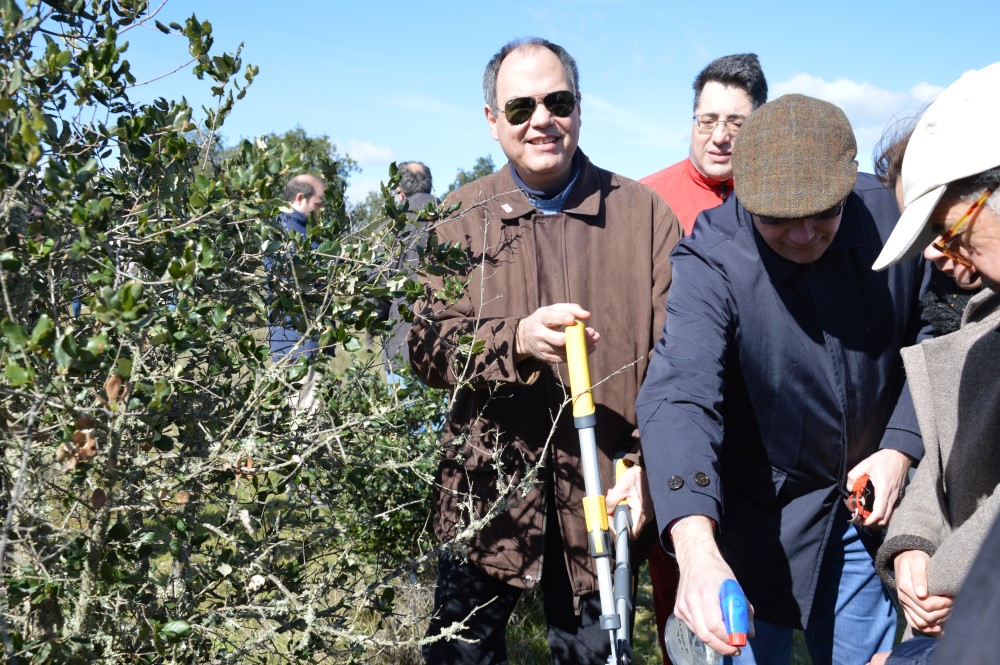
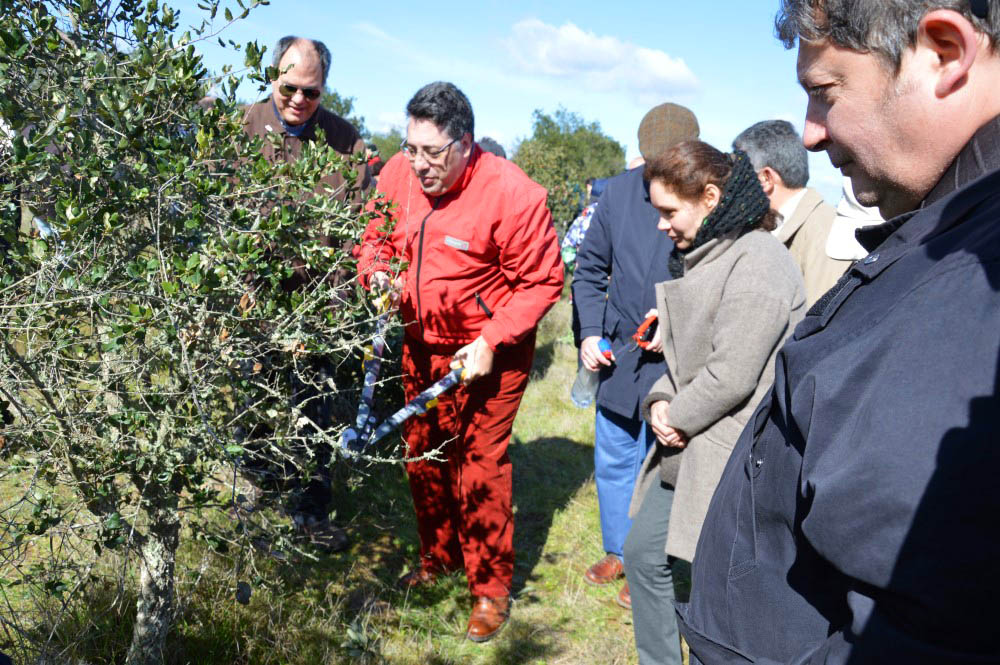
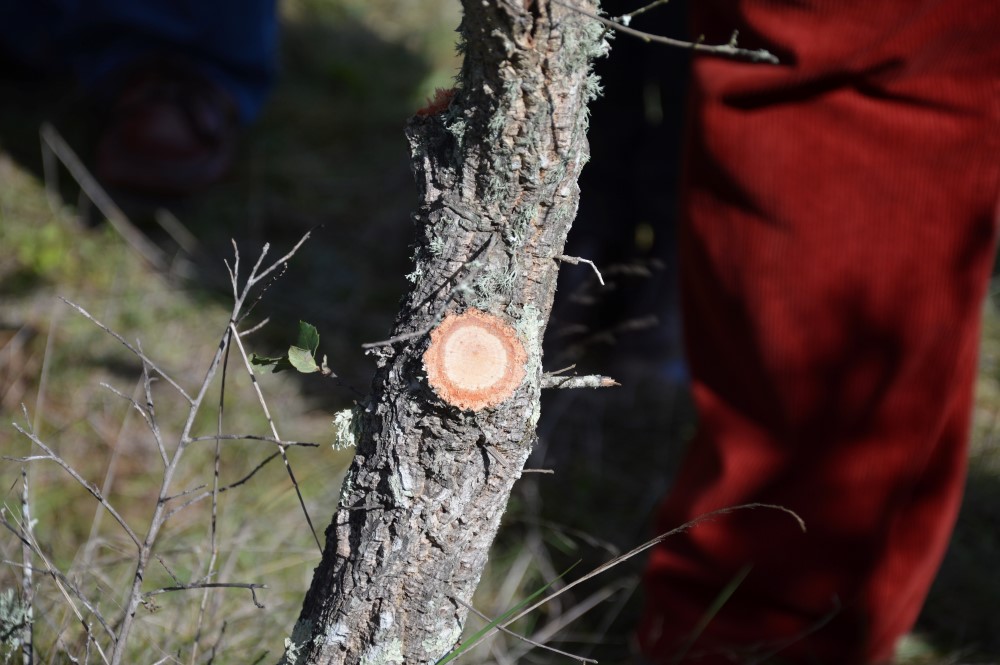
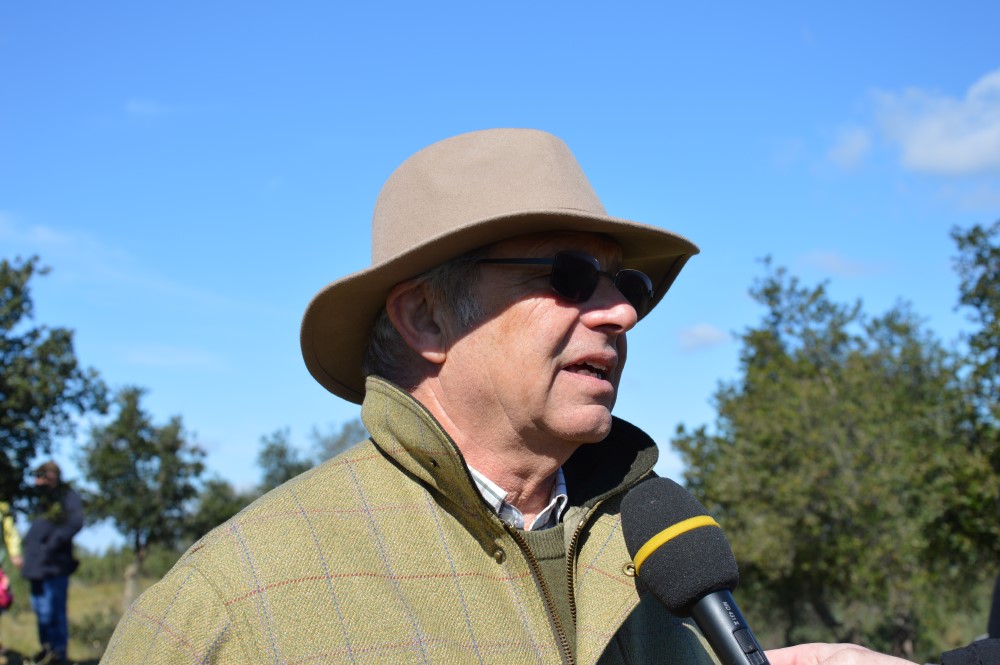
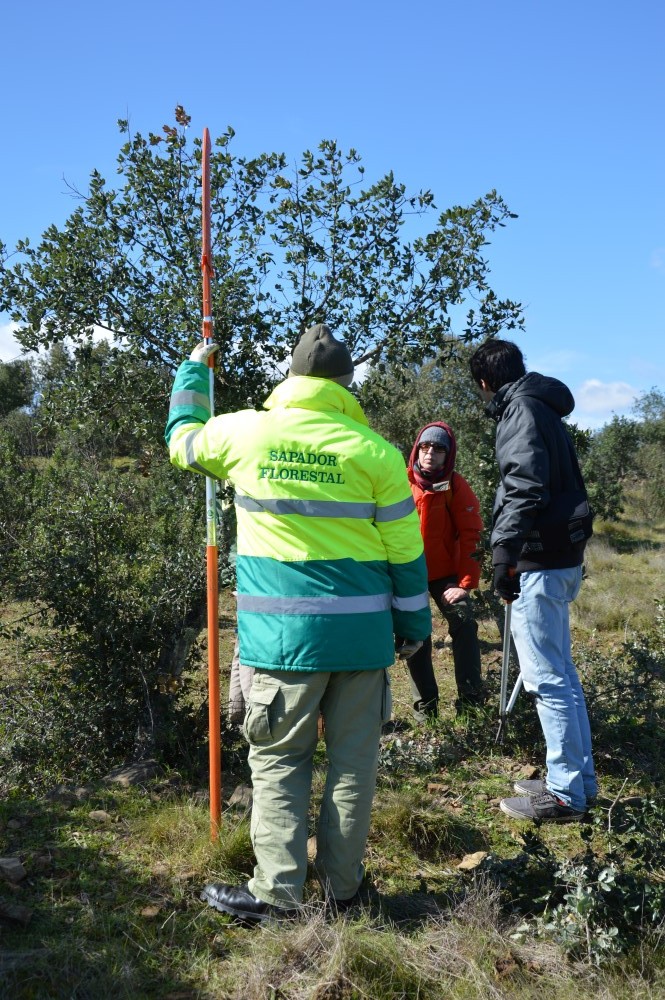
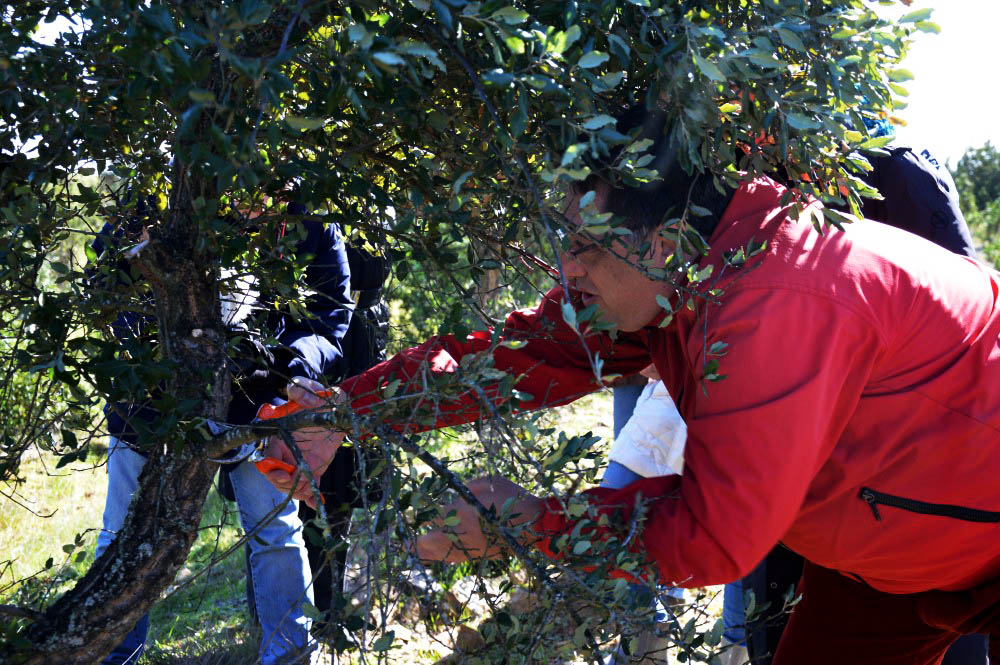
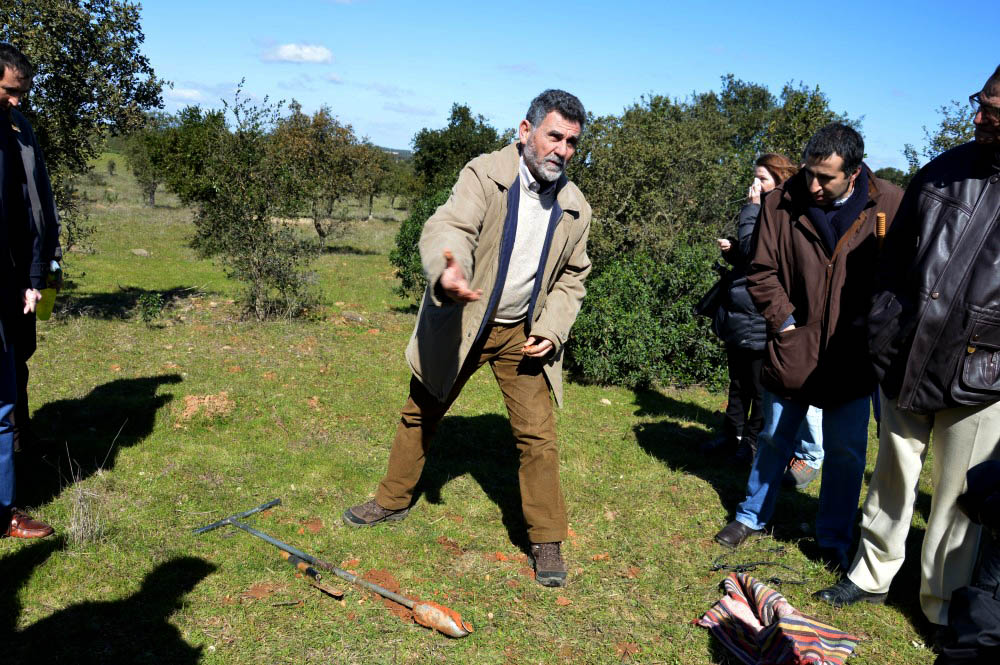
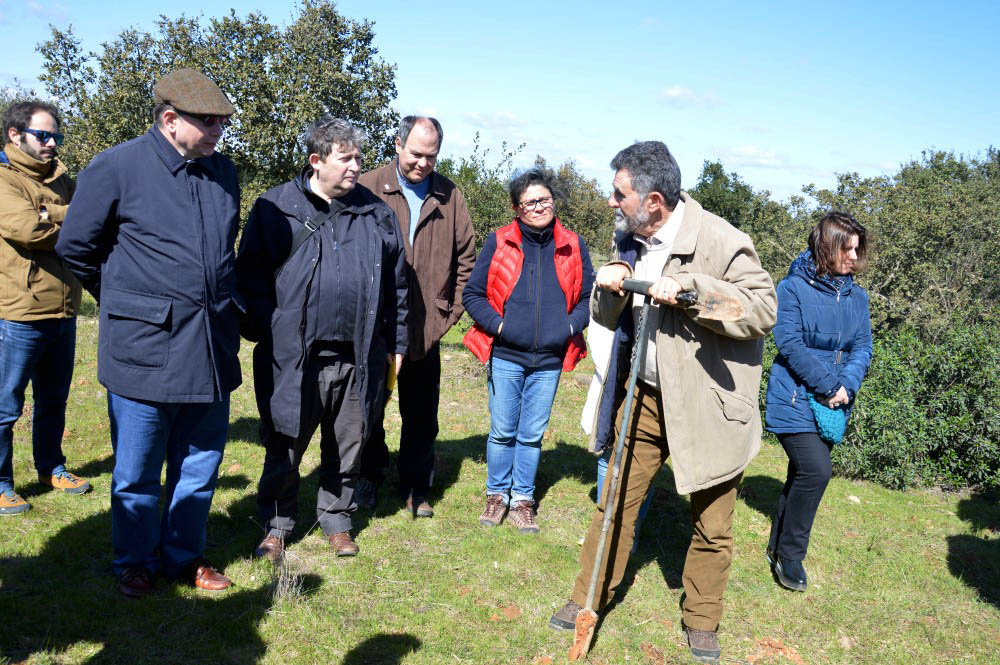
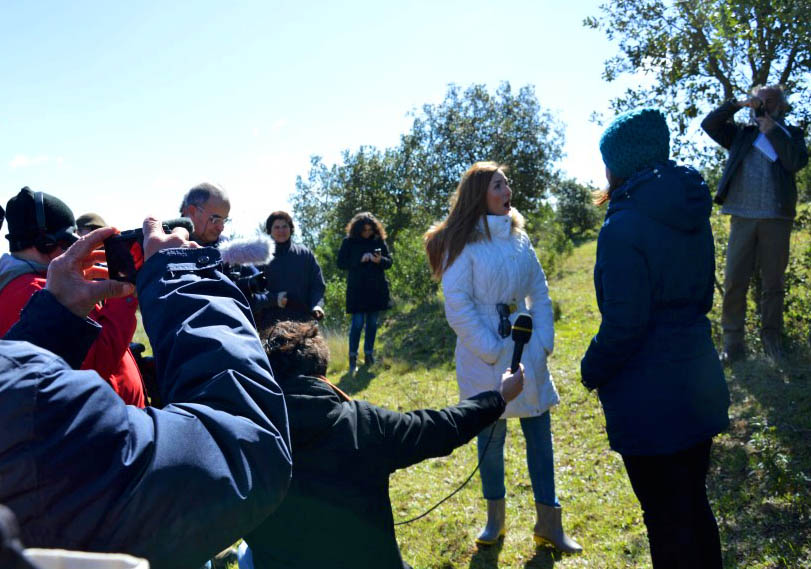


















Comments